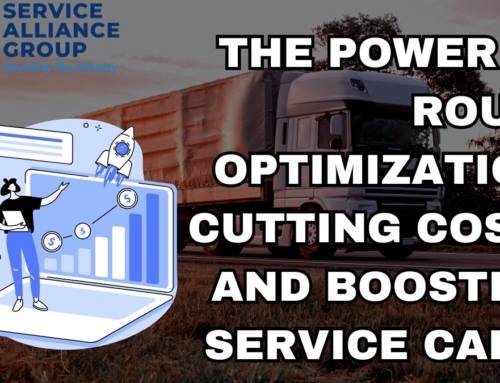Ever wonder how marketing influences customer value? How does it provide a positive impact on their customer experience? What should be done to increase customer satisfaction?
Today’s customers want to spend less time searching and immediately focus on finding the needed items. As a result, retailers are also expected to provide clear information on prices and options without feeling pressured into buying something.
Customers don’t only pay attention to price, quality, support, and availability. They also consider other attributes such as brand awareness, ease of use, speed, security, etc. The good news is that customers who feel valued generally stick around longer.
How Marketing and Customer Value Are Related
Customer value is defined as the benefits that customers receive from buying products and services offered by companies. Generally, it refers to the extent to which customers are satisfied with the products and services they buy. Marketing is argued to initiate and develop customer value, and the marketer maintains the relationship to keep customer loyalty and ultimately increase profit margins. Although some studies support the idea that marketers play a significant role in creating customer value, others claim that customer value creation is a concurrent process and that marketing does not initiate nor develop the value itself.
What Is Value Marketing
In today’s digital landscape, “value marketing” refers to marketing that focuses on delivering products and services that meet specific needs, solve problems, or fulfill desires. Rather than selling based on the price point, value marketers look to deliver tangible benefits to valuable customers.
A value-driven approach to marketing helps companies attract consumers by focusing on the needs of their target audience rather than trying to sell them something. For example, instead of just telling people how great your product or service is, it focuses on finding solutions to their problems. This type of marketing encourages valuable customers to buy from you because they feel you care about solving their problems.
This approach helps companies build stronger relationships with their target market because it allows them to offer something meaningful rather than just trying to sell goods and services.
The most successful companies understand that they can’t simply focus on offering cheap prices; they must find a way to provide real value to their customers. Doing so can develop long-lasting relationships with their clients, creating loyal fans who will buy again and refer others.
Ways Marketing Influences Customer Value
Customer perceived value (CPV) is important because marketers can use the idea to determine how consumers might perceive a product or service. For example, marketers can use CPV to decide whether to raise prices, offer discounts, or even change how they communicate about products and services.
How Your Product Would Look
Designing products or services that are appealing to potential buyers is crucial. A study found that people spend less money buying things that look ugly. It seems like aesthetics play a role in almost every aspect of consumer behavior. Consumers are willing to pay more for beautiful items, while the opposite holds for those that don’t appeal to the eye.
The researchers believe this phenomenon is because people perceive beauty as something that makes life better and worth spending extra money on. They also noted that many studies show that people tend to buy more expensive products than they feel deserved. This is because they want to show others how much they’ve spent.
The same study found that when people saw a program with a poor appearance, they viewed it as having lower quality and greater complexity. These findings suggest that the form of a product or a service plays an important role in how valuable customers perceive it.
How You Utilize Your Services
To increase the task value service means to improve the item’s capability to save energy, money, or time. Task value refers to how much work it takes to use something — cleaning a room or performing a job like delivering groceries.
The term “task” was coined by marketing experts at Accenture to describe what companies do to differentiate themselves from competitors. So naturally, they’re trying to make life easier for prospective customers. But there’s another reason marketers should care about task value: Consumers increasingly want things that help them do less work.
As consumers become more efficient at completing routine tasks, traditional advertising methods aren’t working. So instead of spending money on expensive TV ads, companies are investing in digital tools to connect directly with potential customers. These tools give businesses access to information about consumer preferences and the behavior of customers, allowing them to target specific markets based on interests, location, and demographics.
This shift toward efficiency is changing the way consumers interact with brands. As consumers become more efficient at accomplishing everyday activities, they’re looking for ways to reduce the time spent on those tasks. So while task value isn’t necessarily replacing brand loyalty, it does represent a new type of relationship between consumers and companies.
How Your Customers React to Your Services
One of the reasons that marketing campaigns are so successful is that they trigger an emotional reaction in viewers. The more people feel strongly about something, the more willing they are to share their thoughts. Because of this, if your company produces any product or service that can evoke strong emotions, then chances are good that your campaign will be successful.
How Available You Are to Accept Orders
If you want to improve your marketing strategy, start by understanding the importance of availability. Next, you’ll learn why it’s crucial to know exactly where your target audience is searching and how to reach those potential buyers.
The availability value refers to how easily and quickly a potential customer can find your product. If you sell groceries, it might mean staying open late. Running a 24/7 customer support center could mean having access to agents around the clock. And selling digital goods could make your site accessible via mobile apps or social media channels like Facebook Messenger.
For businesses, availability often takes precedence over price. Low prices aren’t always enough to entice customers to buy your product. Availability matters because it makes it easier for people to buy your product. When someone wants something, they want it now. Otherwise, they’ll go elsewhere where they can find what they want.
Amazon’s “Prime Now” delivery option is a game changer for the retail industry. By offering free shipping on certain items, Prime members can shop anytime, anywhere, without worrying about whether there’s a physical location nearby.
How Your Clients Remember You
Another major way marketing influences consumers’ buying behaviors is by evoking emotional reactions. A prominent example of this technique is brand advertising designed to evoke nostalgic feelings of youthfulness and happiness. In contrast, products associated with fear can stimulate fears about health hazards (e.g., cigarette smoking) and dangerous conditions (e.g., driving).
How Your Business Can Scale Up
In today’s world, marketing offers the best way for firms to grow internally and externally. Marketing helps companies identify their strengths and weaknesses, plan strategically, and decide what actions to take. Marketing also enables firms to evaluate their growth opportunities and progress with the right strategy.
According to Fejza and Asllani, “marketing is the process of creating value for consumers.” This value creation is achieved by providing solutions to problems in ways perceived as useful by customers. Therefore, firms must understand target audience needs and how their products and services meet them. They must also consider the competitive environment and the industry structure.
According to marketing, a firm’s ultimate goal is to increase revenues and profits and maximize the interests and welfare of its stakeholders. Marketing is, therefore, the framework to enable firms to evaluate their growth options, identify their strengths and weaknesses, and decide on the most effective way to grow. This includes choosing whether to pursue expansion into the market, create new products or enter new markets.
Since the ultimate goal of a company is to generate profit and enhance shareholder value, marketing offers the framework to help companies make decisions about how best to achieve those goals. Marketing helps companies focus on what matters most by providing the framework to evaluate the relationship between the customer/client and the product/service, the company’s resources, and the competitive environment.
Why You Should Bother With Customer Value Marketing
Customer value marketing is an important concept in marketing. It is the basis for all good marketing. A product or service must provide something to the consumer that is worth more than what he pays. If a product or service does not deliver a real benefit, it will not be bought again. Therefore, one cannot say that a product or service is successful because it sells well. Instead, one must consider the actual benefits the buyer receives.
Customer value marketing is important because it helps companies understand what customers want. In addition, it allows businesses to know how much customers value their products or services. This is especially useful for manufacturers and sellers because they can use this information to improve their products and services.
Traditional Marketing Isn’t Working Anymore
The days of spending money on traditional advertising campaigns are numbered. Today, there are many more ways to reach out to potential consumers. And due to increased competition among businesses, prices for advertising space continue to rise. In addition, fewer people trust traditional advertising.
In fact, according to research conducted by MediaPost, only 30% of respondents believe that traditional advertising works. Moreover, this number has been declining since 2010.
Moreover, most consumers now prefer receiving information about products and services directly from brands rather than having TV commercials bombard them.
According to the Global Web Index, 90% of online shoppers use social media to find products and services. Therefore, spending hundreds of thousands of dollars on traditional advertising is not wise.
You’re Building Better Customer Relationships
You must give them something of real value to build strong ties with your clients. This doesn’t mean giving away free stuff or providing low-quality services. Instead, it means creating positive experiences that help your client solve problems. For example, if you sell a car, you could offer a $1,000 discount if your buyer buys insurance through your company. Or, if you’re selling a house, you might offer a free home inspection.
These offers allow your loyal customers to experience how much you care about solving their problems. They show you’re willing to go above and beyond to ensure your client’s needs are met. And, because you’ve built a relationship based on mutual respect and understanding, your clients will feel comfortable asking you questions and seeking advice.
Helps You Retain Clients Better
According to a report published by Forrester, when customers feel like you have their best interest in mind, they are much more likely to choose you than your competition in the initial sale and during renewals. Additionally, building an emotional relationship with your clients will help retain them. Research indicates that customers who feel they have been treated fairly and respectfully are far less likely to defect to another provider than those who don’t feel that way. So, why don’t marketers focus more on cultivating these types of relationships? Because it takes time and money to invest in establishing these bonds with your customers. But it is worth it. A study by Gartner found that every dollar spent on emotional connection generates $2.40 in revenue.
And it’s not just about making your customers feel good. Emotionally connecting with your clients will help you stand out against competitors. According to research by CustomerThink, one-third of consumers say that they prefer buying products from companies that care about their feelings. In addition, customers who feel they are being listened to and cared for are three times more likely to recommend a brand to acquaintances than those who don’t feel heard. As such, developing a strategy that focuses on cultivating emotional connections with your customers will allow you to establish yourself to provide your clients with a reason to stick with you long term.
You Get Brand Advocates
Value marketing is one of the most effective ways to build brand advocates. You gain loyal followers and advocates by creating content that benefits your audience while giving them something of value. These people will promote your brand online, recommending it to others. This creates a virtuous cycle where your brand grows and becomes even better.
The key to making value marketing work for your brand is to deliver content that offers real value to your audience. If you do this, you’ll find that you’re building relationships with them and inspiring them to recommend your products and services to others.
How to Use Marketing to Improve Customer Value
The most successful companies know how to adapt to changing market conditions. They pivot their strategies to meet the needs of their customers. This concept applies to every type of business, even those that don’t sell products or services directly to consumers. Companies like Amazon, Apple, Facebook, and Google understand that people buy something because it solves their problems. These businesses focus on solving individual customer pain points and use their influence to help others solve theirs.
Instead of Selling, Teach Your Clients Something New
One of the best advertising messages to show customers that you care about them is to help them learn something new. If you’re running a blog post, consider sharing helpful articles or tutorials. Or, if you sell products online, include useful videos that showcase how to use your product.
If you want to build trust with your audience, don’t just tell them what you do; explain why you do it. For example, if you run an air conditioning repair company, talk about how you got into the industry and what makes you different from others.
Make Them Part of Your Journey
Customers are the most important part of every brand’s journey. They are the reason why you do what you do. They’re our biggest advocates and supporters. And they’re the ones who help us define ourselves. But how often do you include them in your corporate story?
Including customers in your corporate story gives them a voice and puts them front and center in your marketing strategy. By telling your marketing message through customer voices, you’ll give your audience insight into your company’s culture, values, vision, and mission. In addition, this allows customers to become active participants in your brand’s evolution.
Nothing Beats Top-Notch Service
Customer service is an important element of any business. The quality of your customer service can make or break your brand. So how do you define excellent customer service?
The answer is simple: treat your customers like people. You want to show them that you have their best interests at heart.
This includes making sure that every customer feedback goes smoothly. If something doesn’t work out as planned, don’t just let it slide. Instead, make sure you find out how to fix it and do everything possible to ensure that it never happens again.
Also, you should communicate the value you helped a customer realize in order to provide the best customer service possible. It could be anything from saving them money to improving their product experience.
Finally, you need to be able to measure the value you help your customers realize. It’s often easier to measure the value you’ve delivered than to measure the value you didn’t deliver.
Identify Who Your Target Market Is
Value marketing is all about the value proposition. It’s what makes your product or solution stand out from others. You need to prove that your offering has real value. This means understanding the marketing message of who you want to sell to and how you can help them succeed.
If you don’t know your target customers, you won’t be able to market to them effectively. If you don’t understand how you can solve their problems, you won t be able to communicate your value effectively. And if you aren’t aware of the needs of your potential customers, you won’t be likely to attract the wrong people.
Knowing your target customers lets you start thinking about how to deliver value. For example, if you’re selling enterprise software, you might consider the businesses where you see the most success. Maybe there’s one type of company that stands out above others. Or maybe something unique about a particular industry sets it apart.
The key here is finding the things that set your customers apart from others. Then, when you talk to prospective buyers, you can show them why you’re the best fit for them.
Know That There Is More to Pricing and Product Quality
Understanding the value chain helps you identify areas where you can make improvements. For example, you might find that some suppliers are offering discounts because previous clients have burned them. Or maybe you could negotiate better terms with distributors. By taking a closer look at the steps involved in producing a product or delivering a service, you’ll see opportunities to reduce overall monetary costs and improve efficiency.
Know That How Your Clients Feel About Your Services Matter
Emotional appeals work because they tap into something deep inside people. When you see a product that speaks directly to your needs, wants, desires, fears, hopes, dreams, aspirations, values, beliefs, and even memories, you connect emotionally with it. You feel good about buying it. Sometimes you don’t think about the monetary value.
The vast majority of buying decisions aren’t based on logic alone. They’re based on emotions. And while people have become increasingly aware of how emotional decision-making positively impacts their lives, marketers haven’t done much about it. You still treat marketing like science, even though people are far more likely to trust brands that appeal to their emotions.
Improve How You Tell Your Story
In today’s digital age, storytelling is becoming increasingly important. People want to know how products work, why they matter, and what makes them unique. This is especially true among millennials, which are used to being able to watch videos online and read articles that explain complex topics in layman’s terms. Therefore, to attract more customers, you must become a master storyteller.
Improve How You Provide Experiences
Interactive digital experiences are one way to engage potential buyers and keep them interested in your brand, creating a positive impact on user experience. These experiences allow you to provide relevant information and interact directly with prospects while giving insight into their needs and preferences. For example, you can add videos, interactive maps, and live chat to your site.
You can also take it further by creating unique mobile apps that give you access to customer data, such as location and purchase histories. By providing a great experience, you’ll increase conversion rates and reduce abandonment.
Equip Your Staff with the Right Tools
Sales teams always look for ways to improve customer interactions and increase conversion rates. One way to do this is to equip your staff with the right tools. With the right tools, your teams can effectively pull potential customers and leverage those tools throughout the buying process. They can use these tools to tailor customer experiences, demonstrate how your product solves problems, and ultimately close more deals.
To Conclude
The world we live in today demands added-value strategies. Companies must provide something unique to their audience to stand out and succeed. This is why customer-centric marketing is becoming increasingly popular. Do you need assistance in marketing your business? Contact us.






